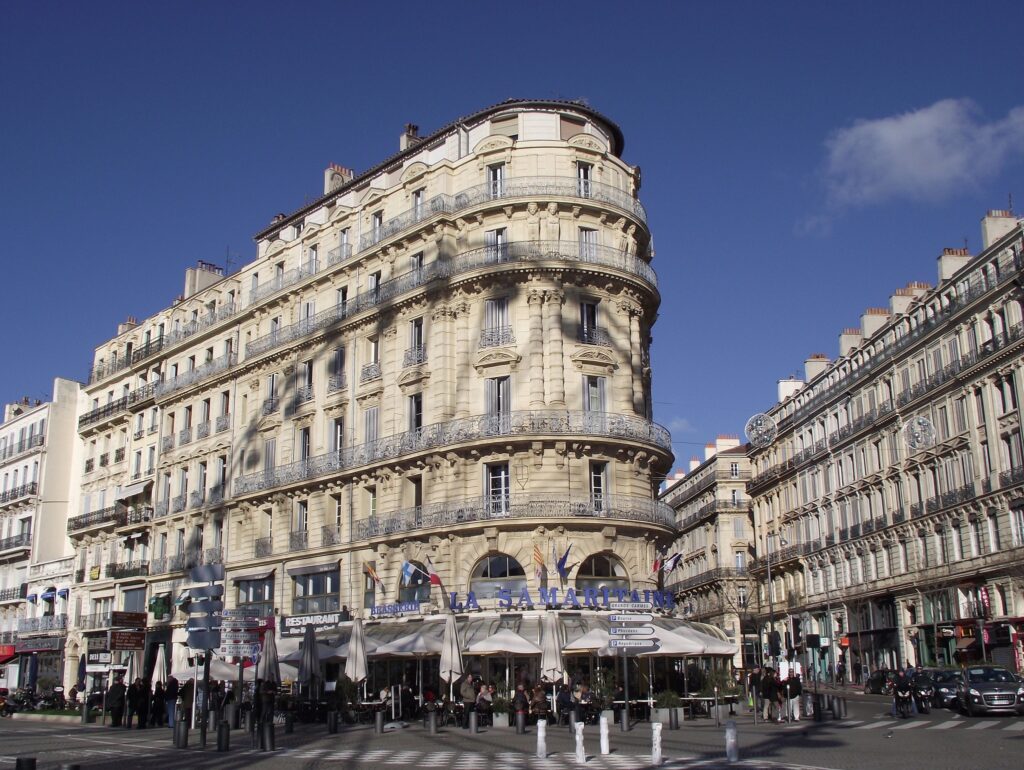Marseilles is the second-largest city in France and one of the major cities in the Mediterranean.
Many of us have some knowledge of Marseilles. The first thing that comes to mind is Alexandre Dumas and his world-famous novel “The Count of Monte-Cristo.”
The main hero of the story was born in Marseilles, and it was the place of the legendary Chateau d'If.
Another association is less pleasant. Marseilles is known as the most criminal city, not just in the south of France, but in the whole country. There are districts where you can be robbed day or night.
That said, it's a city worth visiting. It's not as famous as Paris, but there are still many beautiful and unforgettable places to see.
It's the oldest city on the French Riviera, boasting a world-class museum of fine arts (Musée des Beaux-Arts) and countless new museums.
We also recommend the Natural History Museum of Marseille, which has a wide range of fascinating exhibits.
Tourist attractions include beautiful narrow streets (full of street art and live music) and an old harbor (the Old Port of Marseille) looking over the Mediterranean Sea toward North Africa.
For all these reasons, it was made the European Capital of Culture in 2013. If you're considering a visit to Marseilles, keep reading.
Marseilles Travel Tips
1. There's an excellent tourist office that should be visited by all guests of Marseilles at La Canebière street.
Here, you can take a map of the city center for free, choose an excursion, and learn about possible cultural events. It's one of the best places to get more information about the city. You can also buy tickets (travel cards) for public transport.
2. July and August are considered the hottest months of the year; still, pleasant cool days may occur that can still be perfect for walking through this port city.
There's a significant increase in tourists during the summer months, so booking a hotel or hostel in advance is best. It may be tough to book a room in popular neighborhoods like Le Panier or the Cours Julien.
3. Many museums and sightseeing spots may change their working hours depending on the season.
Before taking an excursion, confirm the opening hours in a tourist agency (an excellent place to start when planning any outing) or with the staff at your accommodation.
4. It's customary to leave tips in cafes and restaurants, usually about 5 – 10% of the bill.
In some prestigious establishments, the payment for the service is already included in the bill. You'll see a note “service compis,” a signal you don't need to leave extra money.
It's also proper to leave tips for drivers, maids in hotels, and hairdressers.
5. To rent a car, you'll need to show your passport and a driver's license of international standard.
You'll need to leave your credit card as a deposit. A person under 21 years old can be refused a car rental. Also, you can be denied if you obtained your driver's license less than a year earlier.
6. Car enthusiasts should remember that any road traffic offense involves a hefty fine. Thus one of the most severe offenses is exceeding the speed limit and parking incorrectly.
Children 12 years old and younger must travel in the back seats, and small children must be in special car seats.
7. In some museums and famous sightseeing places, photos and videos may be forbidden or only allowed if you pay a fee. Before an excursion starts, it's best to know all the rules to avoid surprises.
8. If you want to save some money, it's worth considering that some museums have no entrance fee, but only for certain days of the month. You can save a lot by planning as you don't need to take a guide.
For example, a great place to visit for free is Notre Dame de la Garde, a stunning cathedral on a hill that towers over the city. Visiting Notre Dame is a great way to get a sense of Marseilles' long history and one of the top things to do on your trip.
You could also consider a day trip to the Chateau d'If (or Château d'If) and Fort Saint-Jean, both of which offer some of the best things to do and see in Marseilles.
9. The best way to see the beauty of Marseilles is to travel on foot through the city. You won't need to drive as most destinations are easily accessible on foot.
In some cases, you can take a bus, and it can also be convenient to travel by tram. There's no need to use a taxi as you'll waste your money, and it's not as safe either.
10. Avoid walking alone at night in the city and try not to walk in unknown and strange districts as it can be dangerous. Stay in crowded places.
11. Finally, before going to Marseilles, or any other city in France, it's best to learn some French phrases to order something or understand the locals. The French don't like to use English.
It can be easy to learn French if you use an online platform where you can easily choose your native French-speaking teacher.
___
This article was published in partnership with Preply.
This post was written by a guest contributor. Please reference the author's byline in the post above for more information. If you would like to guest post on Go Backpacking, please read our submission guidelines. For information on advertising opportunities, go here.
Planning a trip? Go Backpacking recommends:
- G Adventures for small group tours.
- Hostelworld for booking hostels.


